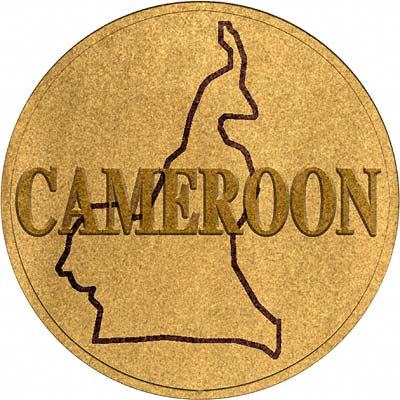| The Very Highest Quality Information... |
| Cameroon and Cameroonian Coins |
|
| ||||||||||||||||||||||||||||||||||||

| ||||||||||||||||||||||||||||||||||||
Pre-Colonial History
Cameroon was ruled by various tribal kingdoms prior to colonial conquest, the most prominent of which was the Fulani, who dominated the northern part of what is now Cameroon. Although Europeans traded with locals along the coast, they did not penetrate the interior until the late 19th Century when anti-malarial medication made attempting to do so less of a death sentence.
German Colonisation
German traders first established commercial interests in the area in the 1860s, purchasing land from local chieftains in order to found banana plantations. They later petitioned the German government for support, however, little interest was shown until the 1880s, when the ‘Scramble for Africa’ amongst European powers saw Germany formally establish the colony of Kamarun in 1884.
Kamarun Divided
The outbreak of World War One saw the German colony invaded by Britain, France and Belgium. Although the Germans enjoyed some success in initially holding off the allies, the allied blockade of Germany prevented the German garrison from receiving reinforcements or supplies, and German forces were eventually defeated and the remnants were driven into Spanish Morocco, where they were interned for the duration of the war.
Following the signing of the Treaty of Versailles in 1919, the French and British divided the former German Colony amongst themselves.
French Cameroun
France attempted to wipe out all traces of German influence in its mandated territory. It imposed education in French (which had the effect of rapidly making French the lingua franca in the region) and introducing the French system of government, law and administration. During World War II, French Cameroun joined the Free French, and de Gaulle travelled to the then capital Douala in order to rally French Colonial forces to attack Vichy-held territory. Although this campaign was a failure for the Free French, Cameroun remained in Free French Hands.
British Cameroons
The British took a smaller amount of territory from the former German colony, consisting of Northern and Southern Cameroons, which divided by a small strip of land belonging to Nigeria. The British took a more ‘hands off’ (some might say slightly negligent) approach to the Cameroons, giving a high degree of autonomy to local rulers but doing little in the way of investing an infrastructure or institutions the way the French were doing in their neighbouring colony. Despite this however, English became the lingua franca in the area just as French became that of French Cameroun, and this led to a significant cultural difference between the two Cameroons.
Independence
The Post-War political situation led to a trend towards dismantling the European Empires in Africa. However, the radical anti-colonialist part; the Union of the Peoples of Cameroon, (or Union des Populations du Cameroun) was banned in 1955, leading to the outbreak of an insurgency against the French colonial government. French Cameroun was given local autonomy in 1956, and was granted full independence in 1960. Despite this, the UPC maintained its insurgence and was not crushed until the 1970's.
In 1961 meanwhile, a plebiscite was held in the British Cameroons, and the South Cameroons opted to join with French Cameroun whilst the Northern Cameroons opted to join with Nigeria, which had gained its independence from Britain the previous year.
Post Independence
Cameroon was effectively ruled as a one party dictatorship from 1960-1982 (under Ahmadou Ahidjo) and from 1982 – 1990 under Paul Biya. In 1990, other political parties were legalised and permitted to take part in elections, although Paul Biya remains as president and many consider these democratic reforms to be largely cosmetic, with widespread political corruption and voting irregularities making some of the results highly questionable.
Cameroonian Coins
Cameroon does not have its own currency. Instead, it uses the Central African Franc (CFA Franc). This currency was introduced in France’s Central African Colonies in 1949 following the French Franc’s devaluation. Coins of 1, 2, 5, 10, 25, 50, 100, 500 francs are issued for circulation. The centime subunit exists only in theory.
For Sale and Wanted
If you are interested in coins from Cameroon please see our product index:-
Cameroonian Coins
Gold Coins
We also have gold coins from Cameroon on our taxfreegold website:-
Cameroonian Gold Coins
| ...at the Lowest Possible Price |
|
32 - 36 Harrowside, Blackpool, Lancashire, FY4 1RJ, England.
Telephone (44) - (0) 1253 - 343081 ; Fax 408058; E-mail: info@chards.co.uk The URL for our main page is: https://24carat.co.uk |
Web Design by Snoop |